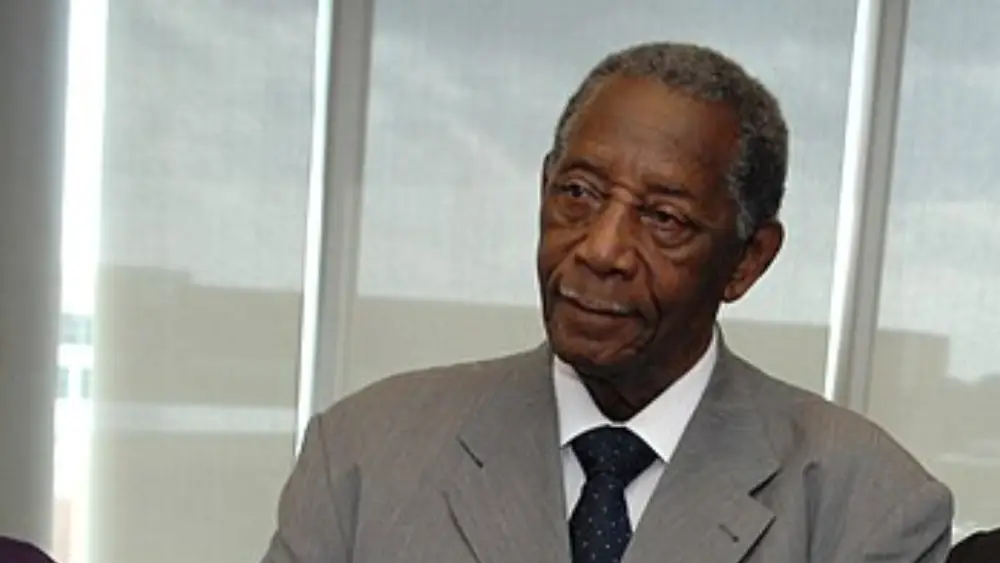Charles Evers was born on September 11, 1922, in Decatur, Mississippi, into a world of racial segregation and inequality. Growing up in a deeply divided South, he experienced firsthand the oppressive nature of Jim Crow laws, witnessing the challenges faced by Black Americans daily. Despite these barriers, the Evers family instilled in Charles and his siblings the values of education, perseverance, and the belief in fighting for justice.
From Humble Beginnings to a Life of Purpose
Charles’ journey of service began during World War II when he enlisted in the United States Army. Serving in the European theater, he not only defended his country but also gained exposure to a world that was both different and more accepting than the segregated South. The contrast he experienced fueled his desire to fight for equality back home. His military service honed his leadership skills, preparing him for the challenges he would later face in the civil rights movement.
A Brother’s Mission, A Nation’s Cause
The assassination of Medgar Evers in 1963 marked a profound turning point in Charles’ life. Medgar, a prominent civil rights leader and NAACP field secretary, had become a symbol of hope for many in the fight against segregation. Charles stepped into the void left by his brother’s death, determined to carry forward the work Medgar had begun.
As the NAACP’s field secretary in Mississippi, Charles became a tireless advocate for racial justice. He spearheaded voter registration drives, often risking his own life in a state notorious for violent resistance to civil rights efforts. His ability to inspire others with his fiery speeches and unwavering determination galvanized communities to demand their rights. Charles understood the importance of economic empowerment, encouraging Black Americans to support Black-owned businesses and demand equal opportunities in the workplace.
His leadership was not without its dangers. Charles, like many civil rights leaders, faced constant threats to his life. Yet, he never wavered, standing as a beacon of hope and resilience in the face of adversity.
Breaking Barriers in Mississippi Politics
In 1969, Charles Evers achieved what many thought impossible: he was elected mayor of Fayette, Mississippi, becoming the first Black mayor of a biracial town in the state since Reconstruction. His election was a groundbreaking achievement in a region where systemic racism had long suppressed Black political participation.
As mayor, Charles focused on tangible improvements that would uplift his community. He prioritized infrastructure development, including roads and public utilities, while working to improve access to education and healthcare. Recognizing the importance of economic growth, he championed initiatives to attract businesses and create jobs for his constituents.
Charles’ tenure was not without challenges. He faced pushback from those who opposed his progressive policies and the empowerment of the Black community. Despite this, his leadership transformed Fayette into a symbol of progress and possibility, inspiring other communities to follow suit.

Championing Equality on a Larger Stage
While his role as mayor brought him national attention, Charles Evers’ influence extended far beyond the boundaries of Fayette. He was a powerful advocate for civil rights on the national stage, speaking out against issues such as police brutality, poverty, and educational disparities.
Charles also utilized the power of media to amplify his message. As a radio broadcaster, he created a platform to inform and inspire listeners, delivering messages of empowerment, resilience, and hope. His ability to connect with people from all walks of life made him a unifying figure, bridging gaps in a nation grappling with division.
In the 1970s, Charles furthered his political ambitions by running for governor of Mississippi and later for the U.S. Senate. Although he did not win, his campaigns broke new ground and brought greater visibility to issues affecting Black Americans. He demonstrated that Black political leadership was not only possible but necessary for creating lasting change.
A Legacy of Resilience and Inspiration
Charles Evers passed away on July 22, 2020, at the age of 97. His death marked the end of an era, but his legacy continues to resonate. He lived a life defined by courage, service, and an unrelenting commitment to justice. Through his leadership, he proved that one person’s determination could challenge deeply entrenched systems of inequality and pave the way for a more inclusive future.
Charles’ life is a testament to the power of resilience. He took up his brother’s mantle in the wake of unspeakable tragedy and transformed grief into action. His work laid the foundation for future generations of leaders and activists, ensuring that the fight for equality would continue.
A Lasting Call to Action
As we reflect on Charles Evers’ journey, we are reminded of the importance of standing up against injustice. His life challenges us to remain vigilant in the pursuit of equality and to honor the sacrifices of those who came before us. Charles believed in the transformative power of collective action, urging communities to unite in the fight for a fairer world.
Charles Evers’ story is not just a chapter in the history of the civil rights movement—it is a blueprint for change. His courage, vision, and unwavering dedication inspire us to keep moving forward, proving that, even in the face of adversity, progress is always possible.











